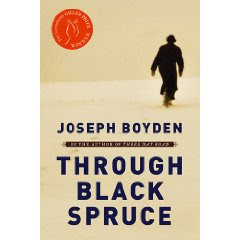Considering "blowback", at the start of the Iraq war, was of primary concern to American citizens everywhere, I was surprised by Ron Paul's reception (but, of course, not by Guilani's opportunism). Blowback is real, it has been happening throughout history and Americans need to understand it if they wish to prevent another attack.
Here is a supporting article.
Paul's 9/11 explanation deserves to be debated
By Roland S. Martin
Former New York Mayor Rudy Giuliani was declared the winner of Tuesday's Republican presidential debate in South Carolina, largely for his smack down of Texas Rep. Ron Paul, who suggested that America's foreign policy contributed to the destruction on September 11, 2001.
Paul, who is more of a libertarian than a Republican, was trying to offer some perspective on the pitfalls of an interventionist policy by the American government in the affairs of the Middle East and other countries.
"Have you ever read about the reasons they attacked us? They attack us because we've been over there. We've been bombing Iraq for 10 years," he said.
That set Giuliani off.
"That's really an extraordinary statement," said Giuliani. "As someone who lived through the attack of September 11, that we invited the attack because we were attacking Iraq; I don't think I've ever heard that before and I've heard some pretty absurd explanations for September 11."
As the crowd applauded wildly, Giuliani demanded that Paul retract his statements.
Paul tried to explain the process known as "blowback" -- which is the result of someone else's action coming back to afflict you -- but the audience drowned him out as the other candidates tried to pounce on him.
After watching all the network pundits laud Giuliani, it struck me that they must be the most clueless folks in the world.
First, Giuliani must be an idiot to not have heard Paul's rationale before. That issue has been raised countless times in the last six years by any number of experts.
Second, when we finish with our emotional response, it would behoove us to actually think about what Paul said and make the effort to understand his rationale.
Granted, Americans were severely damaged by the hijacking of U.S. planes, and it has resulted in a worldwide fight against terror. Was it proper for the United States to respond to the attack? Of course! But should we, as a matter of policy, and moral decency, learn to think and comprehend that our actions in one part of the world could very well come back to hurt us, or, as Paul would say, blow back in our face? Absolutely. His real problem wasn't his analysis, but how it came out of his mouth.
What has been overlooked is that Paul based his position on the effects of the 1953 ouster by the CIA of Iranian Prime Minister Mohammad Mossadegh.
An excellent account of this story is revealed in Stephen Kinzer's alarming and revealing book, "Overthrow: America's Century of Regime Change from Hawaii to Iraq," where he writes that Iran was establishing a government close to a democracy. But Mossadegh wasn't happy that the profit from the country's primary resource -- oil -- was not staying in the country.
Instead, the Anglo-Iranian Oil Company (now known British Petroleum, or BP) was getting 93 percent of the profits. Mossadegh didn't like that, and wanted a 50-50 split. Kinzer writes that that didn't sit too well with the British government, but it didn't want to use force to protect its interests. But their biggest friend, the United States, didn't mind, and sought to undermine Mossadegh's tenure as president. After all kinds of measures that disrupted the nation, a coup was financed and led by President Dwight Eisenhower's CIA, and the Shah of Iran was installed as the leader. We trained his goon squads, thus angering generations of Iranians for meddling in that nation's affairs.
As Paul noted, what happened in 1953 had a direct relationship to the takeover of the U.S. Embassy in 1979. We viewed that as terrorists who dared attack America. They saw it as ending years of oppression at the hands of the ruthless U.S.-backed Shah regime.
As Americans, we believe in forgiving and forgetting, and are terrible at understanding how history affects us today. We are arrogant in not recognizing that when we benefit, someone else may suffer. That will lead to resentment and anger, and if suppressed, will boil over one day.
Does that provide a moral justification for what the terrorists did on September 11?
Of course not. But we should at least attempt to understand why.
Think about it. Do we have the moral justification to explain the killings of more than 100,000 Iraqis as a result of this war? Can we defend the efforts to overthrow other governments whose actions we perceived would jeopardize American business interests?
The debate format didn't give Paul the time to explain all of this. But I'm confident this is what he was saying. And yes, we need to understand history and how it plays a vital role in determining matters today.
At some point we have to accept the reality that playing big brother to the world -- and yes, sometimes acting as a bully by wrongly asserting our military might -- means that Americans alive at the time may not feel the effects of our foreign policy, but their innocent children will.
Even the Bible says that the children will pay for the sins of their fathers.


